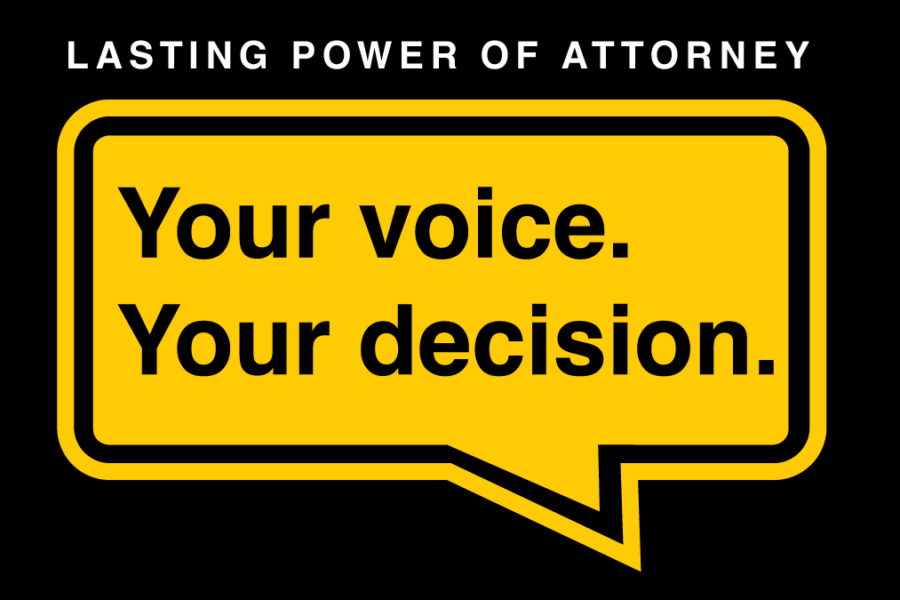Lasting power of attorney
If you lose the ability to make certain decisions, a lasting power of attorney (LPA), keeps those decisions with the people you trust.
An LPA makes it easier for the people you trust to support you when you need it most.
It could be to help with decisions about finances during a short hospital stay, or support to manage decisions about your health and care in the longer-term.
What is an LPA?
An LPA is a legal document that lets someone you trust make decisions on your behalf.

Where to start
Start a conversation with someone you trust today.

Real stories
People across England and Wales share their experience of LPAs.

Working together
We want to work with partners and organisations in England and Wales to promote the benefits of having an LPA.
Support the campaign with a toolkit of resources.
The toolkit includes a leaflet, newsletter article, posters, and images and text for social media posts and digital screens.

